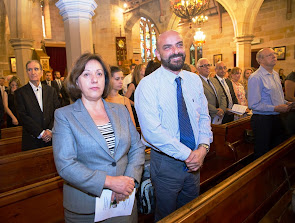HERMES (Hermês, Hermeias, Dor. Hermas), a son of Zeus and Maia, the daughter of Atlas, was born in a cave of Mount Cyllene in Arcadia (Hom. Od. viii. 335, xiv. 435, xxiv. 1; Hymn. in Merc. 1, &c.; Ov. Met. i. 682, xiv. 291), whence he is called Atlantiades or Cyllenius; but Philostratus (Icon. i. 26) places his birth in Olympus.
In the first hours after his birth, he escaped from his cradle, went to Pieiria, and carried off some of the oxen of Apollo. (Hom. Hymn. in Merc. 17.) In the Iliad and Odyssey this tradition is not mentioned, though Hermes is characterised as
a cunning thief. (Il. v. 390, xxiv. 24.) Other accounts, again, refer the theft of the oxen to a more advanced period of the life of the god. (Apollod. iii. 10. § 2; Anton. Lib. 23.) In order not to be discovered by the traces of his footsteps, Hermes put on sandals, and drove the oxen to Pylos, where he killed two, and concealed the rest in a cave. (Comp. the different stratagems by which he escaped in Horn. Hymn. in Merc.75, &c., and Anton. Lib. l. c.) The skins of the slaughtered animals were nailed to a rock, and part of their flesh was prepared and consumed, and the rest burnt; at the same time he offered scrifices to the twelve gods, whence he is probably called the inventor of divine worship and sacrifices. (Hom. Hymn. in Merc.125, &c.; Diod. i. 16.) Hereupon he returned to Cyllene, where he found a tortoise at the entrance of his native cave. He took the animal's shell, drew strings across it, and thus invented the lyre and plectrum. The number of strings of his new invention is said by some to have been three and by others seven, and they were made of the guts either of oxen or of sheep. (Hom. l. c. 51; Diod. i. 16, v. 75; Orph. Argon. 381; Horat. Carm. i. 10. 6.) Apollo, by his prophetic power, had in the meantime discovered the thief, and went to Cyllene to charge him with it before his mother Maia. She showed to the god the child in its cradle; but Apollo took the boy before Zeus, and demanded back his oxen. Zeus commanded him to comply with the demand of Apollo, but Hermes denied that he had stolen the cattle. As, however, he saw that his assertions were not believed, he conducted Apollo to Pylos, and restored to him his oxen; but when Apollo heard the sounds of the lyre, he was so charmed that he allowed Hermes to keep the animals. Hermes now invented the syrinx, and after having disclosed his inventions to Apollo, the two gods concluded an intimate friendship with each other. (Hom. l.c. 514, &c.)
 Apollo presented his young friend with his own golden shepherd's staff, taught him the art of prophesying by means of dice, and Zeus made him his own herald, and also of the gods of the lower world. According to the Homeric hymn (533, &c.), Apollo refused to teach Hermes the art of prophecy, and referred him for it to the three sisters dwelling on Parnassus; but he conferred upon him the office of protecting flocks and pastures (568; comp. Lucian, Dial. Deor. 7; Ov. Met. ii. 683, &c.).
Apollo presented his young friend with his own golden shepherd's staff, taught him the art of prophesying by means of dice, and Zeus made him his own herald, and also of the gods of the lower world. According to the Homeric hymn (533, &c.), Apollo refused to teach Hermes the art of prophecy, and referred him for it to the three sisters dwelling on Parnassus; but he conferred upon him the office of protecting flocks and pastures (568; comp. Lucian, Dial. Deor. 7; Ov. Met. ii. 683, &c.).
a cunning thief. (Il. v. 390, xxiv. 24.) Other accounts, again, refer the theft of the oxen to a more advanced period of the life of the god. (Apollod. iii. 10. § 2; Anton. Lib. 23.) In order not to be discovered by the traces of his footsteps, Hermes put on sandals, and drove the oxen to Pylos, where he killed two, and concealed the rest in a cave. (Comp. the different stratagems by which he escaped in Horn. Hymn. in Merc.75, &c., and Anton. Lib. l. c.) The skins of the slaughtered animals were nailed to a rock, and part of their flesh was prepared and consumed, and the rest burnt; at the same time he offered scrifices to the twelve gods, whence he is probably called the inventor of divine worship and sacrifices. (Hom. Hymn. in Merc.125, &c.; Diod. i. 16.) Hereupon he returned to Cyllene, where he found a tortoise at the entrance of his native cave. He took the animal's shell, drew strings across it, and thus invented the lyre and plectrum. The number of strings of his new invention is said by some to have been three and by others seven, and they were made of the guts either of oxen or of sheep. (Hom. l. c. 51; Diod. i. 16, v. 75; Orph. Argon. 381; Horat. Carm. i. 10. 6.) Apollo, by his prophetic power, had in the meantime discovered the thief, and went to Cyllene to charge him with it before his mother Maia. She showed to the god the child in its cradle; but Apollo took the boy before Zeus, and demanded back his oxen. Zeus commanded him to comply with the demand of Apollo, but Hermes denied that he had stolen the cattle. As, however, he saw that his assertions were not believed, he conducted Apollo to Pylos, and restored to him his oxen; but when Apollo heard the sounds of the lyre, he was so charmed that he allowed Hermes to keep the animals. Hermes now invented the syrinx, and after having disclosed his inventions to Apollo, the two gods concluded an intimate friendship with each other. (Hom. l.c. 514, &c.)
 Apollo presented his young friend with his own golden shepherd's staff, taught him the art of prophesying by means of dice, and Zeus made him his own herald, and also of the gods of the lower world. According to the Homeric hymn (533, &c.), Apollo refused to teach Hermes the art of prophecy, and referred him for it to the three sisters dwelling on Parnassus; but he conferred upon him the office of protecting flocks and pastures (568; comp. Lucian, Dial. Deor. 7; Ov. Met. ii. 683, &c.).
Apollo presented his young friend with his own golden shepherd's staff, taught him the art of prophesying by means of dice, and Zeus made him his own herald, and also of the gods of the lower world. According to the Homeric hymn (533, &c.), Apollo refused to teach Hermes the art of prophecy, and referred him for it to the three sisters dwelling on Parnassus; but he conferred upon him the office of protecting flocks and pastures (568; comp. Lucian, Dial. Deor. 7; Ov. Met. ii. 683, &c.).
The principal feature in the traditions about Hermes consists in his being the herald of the gods, and in this capacity he appears even in the Homeric poems; his original character of an ancient Pelasgian, or Arcadian divinity of nature, gradually disappeared in the legends. As the herald of the gods, he is the god of skill in the use of speech and of eloquence in general, for the heralds are the public speakers in the assemblies and on other occasions. (Il. i. 333, iv. 193, vii. 279, 385, viii. 517, xi. 684; comp. Orph. Hymn. 27. 4; Aelian, H. A. x. 29; Hor. Carm. i. 10. 1.) As an adroit speaker, he was especially employed as messenger, when eloquence was required to attain the desired object. (Od. i. 38, Il. xxiv. 390; Hom. Hymn. in Cer. 335.) Hence the tongues of sacrificial animals were offered to him. (Aristoph. Pax,1062; Athen. i. p. 16.) As heralds and messengers are usually men of prudence and circumspection,
Hermes was also the god of prudence and skill in all the relations of social intercourse. (Il. xx. 35, xxiv. 282, Od.ii. 38.) These qualities were combined with similar ones, such as cunning both in words and actions, and even fraud, perjury, and the inclination to steal; but acts of this kind were committed by Hermes always with a certain skill, dexterity, and even gracefulness. Examples occur in the Homeric hymn on Hermes (66, 260, 383; comp. Eustath. ad Hom. p. 1337; Hom. Il. v. 390, xxiv. 24; Apollod. i. 6. § 3).
Being endowed with this shrewdness and sagacity, he was regarded as the author of a variety of inventions, and, besides the lyre and syrinx, he is said to have invented the alphabet, numbers, astronomy, music, the art of fighting, gymnastics, the cultivation of the olive tree, measures, weights, and many other things. (Plut.Sympos. ix. 3; Diod. l.c. and v. 75; Hygin. Fab. 277.) The powers which he possessed himself he conferred upon those mortals and heroes who enjoyed his favour, and all who had them were under his especial protection, or are called his sons. (Od. x. 277, &c., xv. 318, &c., xix. 397; Soph. Philoct. 133; Hes. Op. 67; Eustath. ad Hom.pp. 18, 1053.)
 He was employed by the gods and more especially by Zeus on a variety of occasions which are recorded in ancient story. Thus he conducted Priam to Achilles to fetch the body of Hector (Il. xxiv. 336), tied Ixion to the wheel (Hygin. Fab. 62), conducted Hera, Aphrodite, and Athena to Paris (Hygin. Fab. 92; Paus. v. 19. § 1), fastened Prometheus to Mount Caucasus (Serv. ad Virg. Eclog. vi. 42), rescued Dionysus after his birth from the flames, or received him from the hands of Zeus to carry him to Athamas (Apollod. iii. 4. § 3; Apollon. Rhod. iv. 1137), sold Heracles to Omphale (Apollod. ii. 6. § 3), and was ordered by Zeus to carry off Io, who was metamorphosed into a cow, and guarded by Argus; but being betrayed by Hierax, he slew Argus.
He was employed by the gods and more especially by Zeus on a variety of occasions which are recorded in ancient story. Thus he conducted Priam to Achilles to fetch the body of Hector (Il. xxiv. 336), tied Ixion to the wheel (Hygin. Fab. 62), conducted Hera, Aphrodite, and Athena to Paris (Hygin. Fab. 92; Paus. v. 19. § 1), fastened Prometheus to Mount Caucasus (Serv. ad Virg. Eclog. vi. 42), rescued Dionysus after his birth from the flames, or received him from the hands of Zeus to carry him to Athamas (Apollod. iii. 4. § 3; Apollon. Rhod. iv. 1137), sold Heracles to Omphale (Apollod. ii. 6. § 3), and was ordered by Zeus to carry off Io, who was metamorphosed into a cow, and guarded by Argus; but being betrayed by Hierax, he slew Argus.(Apollod. ii. 1. § 3.) From this murder he is very commonly called Argeiphontês. (Il. xxiv. 182; comp. Schol. ad Aeschyl. Prom. 563; Ov. Met. i. 670, &c.) In the Trojan war Hermes was on the side of the Greeks. (Il. xx. 72, &c.) His ministry to Zeus is not confined to the offices of herald and messenger, but he is also the charioteer and cupbearer. (Hom. Od. i. 143, Il. xxiv. 178, 440, Hymn. in Cer. 380; Eustath. ad Hom. p. 1205.)
As dreams are sent by Zeus, Hermes, the hêgêtôr oneirôn, conducts them to man, and hence he is also described as the god who had it in his power to send refreshing sleep or to take it away. (Hom. Hymn. in Merc. 14, Il. ii. 26, xxiv. 343, &c.)
Source:Θεοί
















0 σχόλια:
Post a Comment